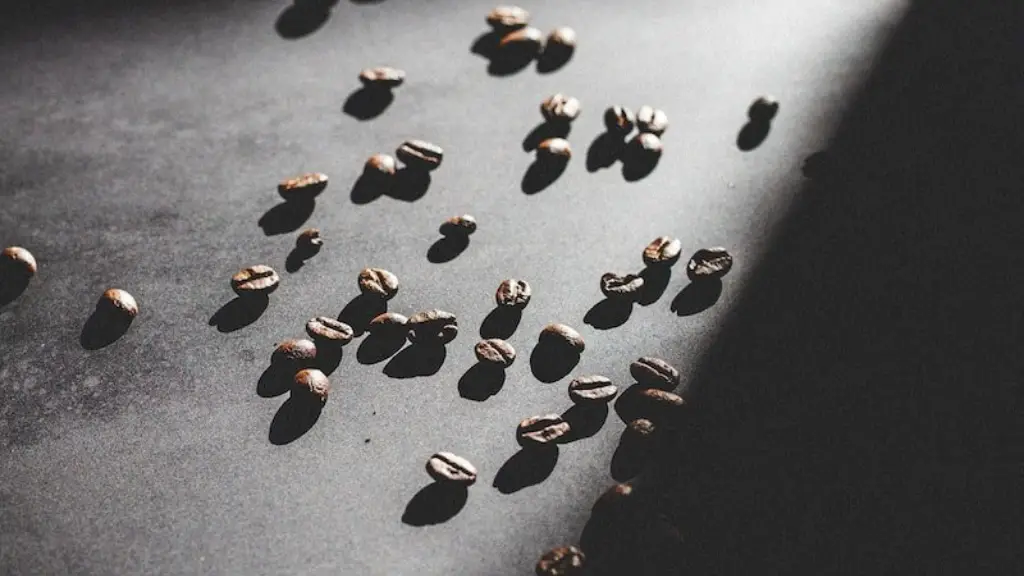Coffee is one of the most popular drinks in the world. Millions of people enjoy drinking coffee every day, with some drinking multiple cups throughout the day. But when is the best time to drink coffee? Is it before or after breakfast? In the morning or right before bed? Should you avoid drinking it in the afternoon?
Everyone’s opinion on when to drink coffee differs because what works for one person may not work for another. Some believe the best time to consume coffee is shortly after waking up, as caffeine helps stimulate your body, mind and muscles. This is because caffeine says in the central nervous system and leads to an increase in alertness. However, if you drink it too late, it might interfere with sleep.
Alternatively, nutritionists recommend drinking coffee within an hour following breakfast, as drinking coffee at this time helps to regulate the digestion process. Caffeine also increases energy levels and increases alertness, making it a great pick-me-up during the day. Furthermore, research suggests that drinking coffee within 1-2 hours after eating breakfast can reduce the risk of developing type 2 diabetes.
On the other hand, there are some who believe that drinking coffee right before bedtime is a bad idea, as it may interfere with one’s sleep. Caffeine generally takes 6-7 hours to leave the system, so it can be disruptive to sleep if not given enough time before bed. Additionally, drinking coffee loaded with sugar and processed ingredients late in the day can increase feelings of anxiety and cause difficulty sleeping.
In conclusion, the perfect time to drink coffee is different for every individual. However, whatever time you decide to drink your coffee, it is best to avoid consuming coffee too late in the night and having more than 3 cups throughout the day. Coffee can be beneficial, but having too much can lead to insomnia, anxiety and other negative health effects.
Coffee and Mood Regulation
Apart from its ability to kick start the day, coffee can have another more indirect effect on your mood. Caffeine can stimulate adrenaline, which is responsible for giving us a feeling of alertness and well-being. This is why many people turn to coffee in times of concentration or stress, seeking a brief respite of calm.However, it should be noted that excessive caffeine intake can backfire. Drinking more than 4 cups of coffee a day can cause feelings of anxiety, restlessness, irritability, and difficulty concentrating.
To receive the greatest benefit from drinking coffee, try to drink it at a moderate level and maintain a healthy life balance. It’s certainly important to find a balance between mental alertness and physical relaxation. It’s also recommended that moods will be regulated if coffee is consumed in the morning, as the stimulating effects of the caffeine will be more beneficial than it would be late at night.
In fact, some studies have found a correlation between caffeine intake and lower rates of depression, so moderate drinking may be beneficial. However, be aware that some people are more sensitive to caffeine than others, so if you feel as though your mood has been upset by coffee, it is best to moderate your intake or try to avoid it altogether.
So, take the time to find what works best for you. Whether you drink one cup of coffee in the morning, or three cups through the day, remember to always prioritize quality over quantity and listen to your body for best results.
Caffeine and Diabetes
In addition to providing an energy boost, drinking coffee may also have a positive effect on diabetes. Several studies have found that drinking coffee can lower blood sugar levels, as well as having a protective effect against type 2 diabetes. The exact mechanisms of these effects have yet to be discovered, but several theories are beginning to emerge.
Caffeine has been found to activate certain pathways that improve the body’s response to insulin. In addition, the compounds in coffee can act as antioxidants, which can help combat oxidative stress that can worsen insulin resistance. Finally, the polyphenols in coffee can increase the body’s ability to absorb glucose.
However, drinking too much coffee has been found to potentially increase the risk of type 2 diabetes due to the potential side effects of caffeine. High levels of caffeine can raise blood sugar levels, increase insulin resistance, and cause adverse effects on other medical conditions such as high blood pressure. Therefore, if someone has a history of diabetes or is prediabetic, drinking coffee in moderation is best.
At the end of the day, the deciding factor on when to drink coffee should depend on the individual’s body, needs and lifestyle. Understanding how caffeine affects us on the physical and mental level helps us choose the best time to consume coffee and reap its maximum benefits.
Cold Brew vs. Hot Brew Coffee
Drinking coffee provides different energy levels depending on the method of brewing. Brewing coffee over heat, often referred to as hot brewing, is when hot water is poured over coffee grounds. This method is the quickest and most basic, with the higher water temperatures extract more of the coffee’s flavor and oils. It produces a stronger, more robust cup of coffee featuring bold flavor notes.
Alternatively, cold brew coffee differs in both flavor and brewing time. Cold brewing coffee involves steeping coffee grounds in cold water for hours, sometimes up to 12 hours, until the water has extracted enough coffee solids and oil. This method of coffee extraction produces a smoother cup of coffee that is less acidic and bitter than coffee brewed with hot water.
Depending on your preference, drinking a hot brewed coffee early in the morning may provide an added pick-me-up, while those sensitive to caffeine may prefer the more balanced and mellow flavor of a cold brew later on in the day. Each method offers its own unique flavor profile, so experiment to find the best one for you.
The Advantages of Drinking Organic Coffee
Organic coffee is grown without the use of synthetic chemical fertilizers, herbicides and pesticides. This type of coffee is gaining popularity among consumers due to its health and environmental advantages. Organic coffee is generally associated with healthier practices, whilst providing a better taste and stronger aroma.
Organic coffee is also a healthier option for those with certain medical conditions, such as those with allergies or diabetes. It is also lower in acidity than regular coffee because of the way it is produced. This can also prove to be beneficial as lower levels of acidity are easier on the stomach and can provide relief to those with irritable stomachs or digestive issues.
Not only can organic coffee provide numerous health benefits, but it also has an incredibly positive environmental impact. Organic farming practices have been found to greatly reduce pollution, erosion and contamination of water resources. Furthermore organic coffee may even have a positive effect on a farmer’s economic wellbeing, as organic farming practices can help farmers increase their crop yields.
Ultimately, organic coffee provides numerous benefits that are not just limited to the taste. It is a healthier and more sustainable alternative to regular coffee and provides a wide range of positive benefits for both your health and the environment.
Rapid Coffee for an Instant Fix
Rapid coffee offers a unique convenience to the morning coffee routine. Rapid coffee originated in Japan, and consists of a dry powder made from ground coffee beans and sugar. It can be conveniently dissolved in hot or cold water, or used as an ingredient in smoothies or other beverages.
Rapid coffee is becoming increasingly popular amongst those on the go, as it ensures you never have to worry about running out of coffee. Unlike normal coffee which can take time to prepare, rapid coffee takes just seconds to dissolve and creates a cup of coffee that is almost indistinguishable in taste from a freshly brewed cup.
Rapid coffee also offers some unique advantages in terms of cost savings and convenience. Whilst it may cost a bit more than regular coffee when buying in bulk, the cost savings will be recouped if you purchase individual servings. It is also an ideal product for those who do not typically drink large amounts of coffee at a time and don’t want the hassle of making it.
So, if you’re looking for a convenient and cost effective way to enjoy your morning cup of coffee, try rapid coffee! In addition to providing an on-the-go solution, it’s also more sustainable and easier to store.





